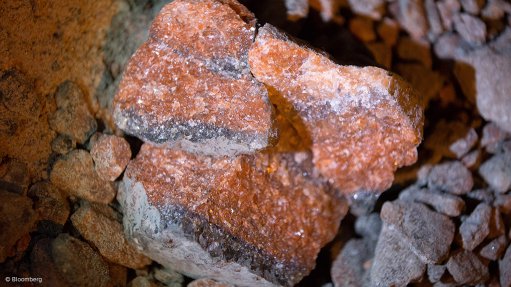
WINNIPEG – Canada's Nutrien, the world's biggest potash miner by capacity, has helped engineer a surprising price rebound for the fertilizer by idling capacity.
Now the trick will be keeping prices from appreciating too much to ensure a major would-be competitor, BHP Billiton, stays on the sidelines.
BHP has been weighing an entry into potash since prices spiked a decade ago. Construction of its Jansen mine in Saskatchewan – which could become the world’s largest - has been advancing slowly for years, but BHP has held off on committing the capital needed for completion, because of soft prices.
A BHP entry would create stiff competition in Canada, where a marketing arrangement allows Nutrien and Mosaic Co to dominate.
Fresh supply would also threaten a recovery for potash driven by steadily growing global demand, Nutrien's curtailments and a slow ramp-up at new mines owned by K+S AG and EuroChem.
Nutrien plans to wield its 8.1-million tonnes of unused capacity to protect its position, in a switch from its previous strategy of using curtailments to lift prices even at the cost of market share.
CEO Chuck Magro, asked whether Nutrien intends to balance its desire for higher prices with an effort to keep competitors out, said "that's exactly the way we think about it."
Nutrien's idled production represents 11% of current global operational capacity and will be deployed once prices approach levels that would encourage new mines, he said.
"There will be a price in the global market, that once we get there, you will see Nutrien put more tonnes into the market because the demand is there. We will not be shy," Magro told Reuters.
Prices are well below such a level, he said, declining to identify it.
Granular potash sells for an average $331/t in Brazil, as of August 17, up 25% year over year, according to Mosaic data.
BHP likely needs prices in Brazil of around $400/t to realize a reasonable return on the Jansen mine, said Berstein analyst Jonas Oxgaard. Nutrien will need to keep prices below that level to avoid "waving a red flag in front of the BHP bull," he said.
BHP reports annual results on Tuesday, and investors will look for any improved sentiment toward potash, given rising prices.
A spokeswoman said BHP takes a long-term view of commodities and investment decisions are not based on short-term prices.
BHP has approved $3.9-billion in spending on the Jansen mine, allowing it to sink mine shafts. That work may last up to two years, and building the first four-million-tonne stage of the mine is expected to require a further $4.7-billion that BHP's board may consider next year.
Three more stages of equal size are longer-term options, taking the mine to 16 million tonnes, or more than double the world's current largest potash mine.
Nutrien maximizes its leverage through Canpotex, a company it owns with Mosaic that handles transportation and sales outside North America.
Canpotex's ownership of thousands of rail cars and access to four port terminals give it a logistical advantage, raising the challenge for K+S, the only other Canadian potash miner, to compete.
But BHP, one of the biggest global sellers of iron ore, copper and coal, has a global supply chain, low-cost production and a reputation for focusing on market share over price, positioning it to mount the fiercest competition Canpotex has ever seen in its own backyard.
"It's already a highly competitive space," said Canpotex CEO Ken Seitz. "The fact that (BHP) would be coming out of Saskatchewan, I don't see that as threatening Canpotex."
Canpotex expects to set a sales record this year of around 13-million tonnes, and has sold out of supplies through October.
Demand from Brazil and China continues to grow, pushing global sales to an expected 66 million-67 million tonnes this year, Seitz said.